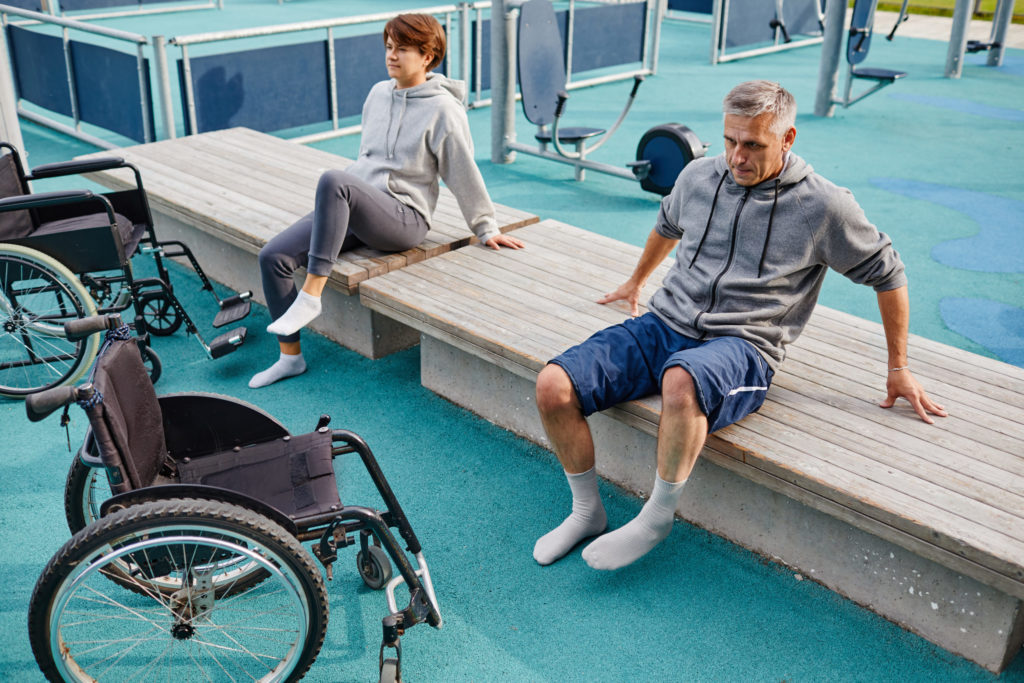A spinal cord injury (SCI) is damage to the spinal cord that can cause loss of muscle function, sensation, or both. SCI can be caused by a number of things, including car accidents, falls, sports injuries, and violence. The extent of the injury depends on the location and severity of the damage. Some people with SCI regain some or all of their function, while others experience permanent paralysis. Recovering from a spinal cord injury can be difficult. Depending on the extent of the injury, you may face a long healing journey. Fortunately, there are resources available that can provide significant help. If you’re not in need of advice, read on to learn about the process of recovering from a spinal cord injury.
What is the process of recovering from a spinal cord injury?
Inpatient rehabilitation is often needed after a spinal cord injury. This is a time when the individual can focus on their rehabilitation and work with a team of specialists who can help them improve their function. The rehab team may include physiatrists, physical therapists, occupational therapists, speech therapists, and nutritionists. Inpatient rehabilitation can last from a few weeks to a few months, depending on the person’s needs. It is a critical time for the individual to focus on their recovery and work towards returning to their everyday life.
When you are ready to move home, you should know that a spinal cord injury can result in a wide range of physical changes that may affect your ability to live independently. Many people with a spinal cord injury will require home modifications for accessibility in order to maintain their quality of life. In particular, your bathroom may need some remodeling. Fortunately, remodeling companies like this bathroom remodel Fort Worth can assist you with all your needs. Grab bars, shower benches, and non-slip mats are all smart investments for anyone who has accessibility needs.
Additionally, a spinal cord injury can affect your general mobility. You may need to use a wheelchair or other mobility device to get around. If you are unable to walk, you will need to make arrangements for home care or for moving into a long-term care facility. You may even need to find a new job that is more suited to your abilities. There are a lot of lifestyle changes that go along with a major injury, but they can vary depending on your individual situation.
How can you protect the health of your back?
When it comes to the health of your back, exercise is key. By regularly engaging in physical activity, you can protect your back from injury and keep it strong and flexible. There are many different exercises that can improve the health of your back, and many of them can be done right at home. One of the best exercises for protecting your back is stretching. Stretching keeps your muscles limber and flexible, which can help reduce the risk of injury. There are several stretches that can improve the health of your back, and many of them can be done right at home.
Sleep is essential for overall health and wellbeing, and is especially important for back health. When you don’t get enough sleep, your body is unable to properly heal and regenerate tissues. This can lead to increased inflammation and a weakened immune system. Lack of sleep can also increase your risk of developing chronic back pain. To ensure you’re getting the most out of your sleep, make sure your sleeping environment is dark, quiet, and comfortable. Use a good quality mattress and pillow, and limit television, computer, and phone use before bed.
There is no one-size-fits-all approach to recovering from a spinal cord injury, so it is crucial to work with your doctor and physical therapist to come up with a plan that meets your specific needs. The recovery process often starts with some type of outpatient or inpatient rehab. When you are able to live on your own, you may need home modifications or assistive devices, which can take time to adjust to. Your lifestyle choices will also play a significant role in your overall quality of life. If you follow this advice, you’ll be well on your way to healing.

